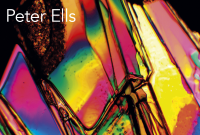

Search:
Contents:
- CHAPTER 1 HOW TO SUBMIT AN INQUIRY
- CHAPTER 2 WRITING YOUR PROPOSAL
- CHAPTER 3 THE CONTRACT OFFER
- CHAPTER 4 AUTHOR SERVICES
- CHAPTER 5 THE EDITORIAL AND PRODUCTION PROCESS
- CHAPTER 6 MARKETING YOUR BOOK
- CHAPTER 7 FAQs
- CHAPTER 8 ROYALTIES
IFF BOOKS PRESENTS
Bernardo Kastrup Essential Reading
Bernardo Kastrup's work has been leading the modern renaissance of metaphysical idealism, the notion that reality is essentially mental. He has a Ph.D. in philosophy (ontology, philosophy of mind) and another Ph.D. in computer engineering (reconfigurable computing, artificial intelligence). As a scientist, Bernardo has worked for the European Organization for Nuclear Research (CERN) and the Philips Research Laboratories (where the 'Casimir Effect' of Quantum Field Theory was discovered). Formulated in detail in many academic papers and books, his ideas have been featured on Scientific American, the Institute of Art and Ideas, the Blog of the American Philosophical Association and Big Think, among others.
His books are recognized as some of the best on the topics featured and are must read for all with an interest in these area's.
CLICK ON THE BOOK COVERS AND LINKS TO START READING TODAY
Meaning in Absurdity
A compelling and eloquent articulation of a future when humanity will transcend logic and find profound meaning in the absurd.
This book is an experiment. Inspired by the bizarre and uncanny, it is an attempt to use logic to expose the illogical foundations of logic; an attempt to use science to peek beyond the limits of science; an attempt to use rationality to lift the veil off the irrational. Its ways are unconventional: weaving along its path one finds UFOs and fairies, quantum mechanics, analytic philosophy, history, mathematics, and depth psychology. The enterprise of constructing a coherent story out of these incommensurable disciplines is exploratory. But if the experiment works, at the end all these disparate threads will come together to unveil a startling scenario about the nature of reality and our condition within it. The payoff is handsome: a reason for hope, a boost for the imagination, and the promise of a meaningful future. But it does not come for free: this book may confront some of your dearest notions about truth and reason. Yet, one cannot dismiss its conclusions lightly, because the evidence it compiles and the philosophy it leverages are solid in the orthodox, academic sense.

Dreamed up Reality
A mesmerizing journey into the unconscious, where one uncovers the unfathomable mechanisms underlying a fractal reality made of thought forms.
A strong and growing intuition in society today is the idea that our thoughts create our own reality. Yet it seems obvious that, try as we might, our lives are not quite what we fantasize. Is the intuition thus wrong? Through a rational, methodic interpretation of meditative insights, the validity of which is substantiated with a compelling scientific literature review, the author constructs hypotheses that reconcile facts with intuition. Mesmerizing narratives of his expeditions into the unconscious suggest an amazing possibility: just as dreams are seemingly autonomous manifestations of our psyche, reality may be an externalized combination of the subconscious dreams of us all, mixed as they are projected onto the fabric of space-time. Perhaps the laws of physics are an emergent by-product of such synchronization of thoughts. Through computer simulations, the author explores the implications of these hypotheses, with conclusions uncannily reminiscent of observed phenomena.
Rationalist Spirituality
A book where all aspects of existence find a logical reason, leading to insightful guidelines for living a purposeful life.
Why does the universe exist and what are you supposed to do in it? This question has been addressed by religions since time immemorial, but popular answers often fail to account for obvious aspects of reality. Indeed, if God knows everything, why do we need to learn through pain and suffering? If God is omnipotent, why are we needed to do good? If the universe is fundamentally good, why are wars, crime, and injustice all around us? In modern society, orthodox science takes the rational high-ground and tackles these contradictions by denying the very need for, and the existence of, meaning. Indeed, many of us implicitly accept the notion that rationality somehow contradicts spirituality. That is a modern human tragedy, not only for its insidiousness, but for the fact that it is simply not true. In this book, the author constructs a coherent and logical argument for the meaning of existence, informed by science itself. A framework is laid out wherein all aspects of human existence have a logical, coherent reason and role, including the ones often perceived as negative. The powerful logic of this framework inescapably leads to insightful and inspiring guidelines for living a purposeful and meaningful life.
Why Materialism Is Baloney
A hard-nosed, coherent and empirically plausible non-materialist metaphysics according to which the body is in mind, not mind in the body.
The present framing of the cultural debate in terms of materialism versus religion has allowed materialism to go unchallenged as the only rationally-viable metaphysics. This book seeks to change this. It uncovers the absurd implications of materialism and then, uniquely, presents a hard-nosed non-materialist metaphysics substantiated by skepticism, hard empirical evidence, and clear logical argumentation. It lays out a coherent framework upon which one can interpret and make sense of every natural phenomenon and physical law, as well as the modalities of human consciousness, without materialist assumptions. According to this framework, the brain is merely the image of a self-localization process of mind, analogously to how a whirlpool is the image of a self-localization process of water. The brain doesn’t generate mind in the same way that a whirlpool doesn’t generate water. It is the brain that is in mind, not mind in the brain. Physical death is merely a de-clenching of awareness. The book closes with a series of educated speculations regarding the afterlife, psychic phenomena, and other related subjects.
More Than Allegory
A plausible, living validation of religion that doesn't contradict reason.
This book is a three-part journey into the rabbit hole we call the nature of reality. Its ultimate destination is a plausible, living validation of transcendence. Each of its three parts is like a turn of a spiral, exploring recurring ideas through the prisms of religious myth, truth and belief, respectively. With each turn, the book seeks to convey a more nuanced and complete understanding of the many facets of transcendence.
Part I puts forward the controversial notion that many religious myths are actually true; and not just allegorically so.
Part II argues that our own inner storytelling plays a surprising role in creating the seeming concreteness of things and the tangibility of history.
Part III suggests, in the form of a myth, how deeply ingrained belief systems create the world we live in. The three themes, myth, truth and belief, flow into and interpenetrate each other throughout the book.
Brief Peeks Beyond
An incisive, original, compelling alternative to current mainstream cultural views and assumptions.
This book is a multi-faceted exploration and critique of the human condition as it is presently manifested. It addresses science and philosophy, explores the underlying nature of reality, the state of our society and culture, the influence of the mainstream media, the nature of free will and a number of other topics. Each of these examinations contributes an angle to an emerging idea gestalt that challenges present mainstream views and behaviors and offers a sane alternative. The book is organized as a series of short and self-contained essays, most of which can be read in under one hour.
Foreword by Deepak Chopra.
The Idea of the World
A rigorous case for the primacy of mind in nature, from philosophy to neuroscience, psychology and physics.
The Idea of the World offers a grounded alternative to the frenzy of unrestrained abstractions and unexamined assumptions in philosophy and science today. This book examines what can be learned about the nature of reality based on conceptual parsimony, straightforward logic and empirical evidence from fields as diverse as physics and neuroscience. It compiles an overarching case for idealism - the notion that reality is essentially mental - from ten original articles the author has previously published in leading academic journals.
The case begins with an exposition of the logical fallacies and internal contradictions of the reigning physicalist ontology and its popular alternatives, such as bottom-up panpsychism. It then advances a compelling formulation of idealism that elegantly makes sense of - and reconciles - classical and quantum worlds. The main objections to idealism are systematically refuted and empirical evidence is reviewed that corroborates the formulation presented here. The book closes with an analysis of the hidden psychological motivations behind mainstream physicalism and the implications of idealism for the way we relate to the world.
Decoding Schopenhauer’s Metaphysics
A succinct but complete guide to Schopenhauer's metaphysics that renders it coherent and intuitively compelling.
First proposed more than 200 years ago, Schopenhauer's extraordinarily prescient metaphysics - if understood along the lines thoroughly elucidated and substantiated in this volume - offers powerful answers not only to the paradoxes of quantum mechanics, but also to modern philosophical dilemmas such as the hard problem of consciousness - which plagues mainstream physicalism, and the subject combination problem - which plagues constitutive panpsychism.
This invaluable treasure of the Western philosophical canon has eluded us so far because Schopenhauer’s argument has been consistently misunderstood and misrepresented, even at the hands of presumed experts.
Hoping to change this situation, Decoding Schopenhauer’s Metaphysics, offers a conceptual framework, a decoding key for unlocking the sense of Schopenhauer’s metaphysical contentions in a way that renders them mutually consistent. With this key in mind, even those who earlier dismissed Schopenhauer’s metaphysics should be able to return to it with fresh eyes and at last grasp its meaning. And for those as yet unacquainted with Schopenhauerian thought, this volume offers a succinct and accessible entry path.

Science Ideated
Why it is increasingly evident that ideas, not matter, are the sole object of all sciences.
Leading-edge empirical observations are increasingly difficult to reconcile with 'scientific' materialism. Laboratory results in quantum mechanics, for instance, strongly indicate that there is no autonomous world of tables and chairs out there. Coupled with the inability of materialist neuroscience to explain consciousness, this is forcing both science and philosophy to contemplate alternative worldviews. Analytic idealism - the notion that reality, while equally amenable to scientific inquiry, is fundamentally mental - is a leading contender to replace 'scientific' materialism.
In this book, the broad body of empirical evidence and reasoning in favor of analytic idealism is reviewed in an accessible manner. The book brings together a number of highly influential essays previously published by major media outlets such as Scientific American and the Institute of Art and Ideas. The essays have been revised and improved, while two never-before-published essays have been added. The resulting argument anticipates a historically imminent transition to a scientific worldview that, while elegantly accommodating all known empirical evidence and predictive models, regards mind - not matter - as the ground of all reality.
Decoding Jung's Metaphysics

Embodied in this compact volume is a journey of discovery through Jungian thoughtscapes never before revealed with the depth, force and scholarly rigor you are about to encounter.
More than an insightful psychologist, Carl Gustav Jung was the twentieth century's greatest articulator of the primacy of mind in nature, a view whose origins vanish behind the mists of time. Underlying Jung's extraordinary body of work, and providing a foundation for it, there is a broad and sophisticated system of metaphysical thought. This system, however, is only implied in Jung's writings, so as to shield his scientific persona from accusations of philosophical speculation.
The present book scrutinizes Jung’s work to distil and reveal that extraordinary, hidden metaphysical treasure: for Jung, mind and world are one and the same entity; reality is fundamentally experiential, not material; the psyche builds and maintains its body, not the other way around; and the ultimate meaning of our sacrificial lives is to serve God by providing a reflecting mirror to God’s own instinctive mentation.
Embodied in this compact volume is a journey of discovery through Jungian thoughtscapes never before revealed with the depth, force and scholarly rigor you are about to encounter.
YOU MAY ALSO ENJOY
Kabbalistic Panpsychism
A novel Kabbalistic synthesis on the nature of consciousness
From a scientific and philosophical point of view, there is arguably no phenomenon as intractable as the origin and nature of consciousness. This volume provides a comprehensive account of the Kabbalistic understanding of consciousness adduced from ancient Jewish mystical texts and the writings of key sixteenth-twentieth century Kabbalistic and Chassidic luminaries.
The Deceptive Brain
We are not whom we seem to be. Not even close.
Preposterous as it sounds, we are not who we seem to be.
Not even close. At the heart of this misperception is our deep-seated conviction of free choice. Based on emerging neurobehavioral science findings, The Deceptive Brain makes the case for human experience as a narrative illusion—an executive summary of sorts—that emerges from an incredibly complex brain.
The Deceptive Brain drills down on what this finding means for the way we blame and punish, and presents a bold alternative approach to criminal justice based on blameless responsibility.
NEXT ARTICLE
The most successful people on the planet read a book a week.
Do you have a dream of being a published author?
Collective Ink is an independent publisher with sales teams worldwide welcoming new authors and unsolicited manuscript submissions.
We publish Fiction and Non-Fiction, across 24 imprints.
We build long-term backlists (our books never go out of print), discover and develop long-term relationships with stand-out authors and publish best-in-class series.
For our authors, we provide an automated production system, forums, a marketing database with over 40,000 contacts and other online tools to produce and market each book. We partner with our authors on marketing, reaching all the traditional bookstore markets for print books, worldwide, and all online retailers.
Everything is based on transparency. Authors can see everything that’s going on, including monthly accounts. They have access to our contacts database, can add to it, can even get involved in the business. Most of the people working here came into it as authors.
And it doesn't get any more transparent than this: below you will see a real-time snapshot of the data in our system. The numbers are just presented here to demonstrate the kind of company we want to be... where authors pool resources because we are stronger together.
Categories:
0 comments on this article



































